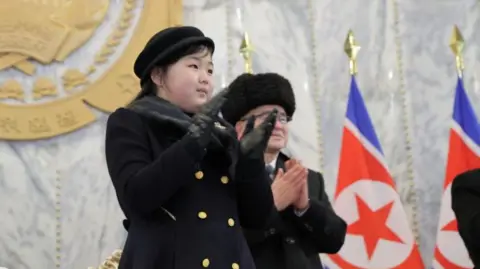In a historic shift from papal traditions, Pope Francis' funeral will take place on Saturday, reflecting his preference for modesty throughout his life. He passed away at 88 due to a cerebral stroke, leading to a global wave of memorials for the Argentine-born pontiff, known for his unique approach to Catholicism and moral advocacy.
His funeral, scheduled for 10 a.m. on Saturday at St. Peter's Basilica, aims to honor his vision of a simpler church. Cardinal Giovanni Battista Re, the dean of the College of Cardinals, will preside over a ceremony that encapsulates the pontiff's call for humility in spiritual practice. Following this, his body will be displayed in the basilica for mourners, and he will be laid to rest at the Papal Basilica of St. Mary Major, fulfilling his desire for a simple burial without elaborate decoration.
In the days since his death, cardinals worldwide have gathered in Rome, prompted by the urgency to fill the leadership vacuum within the Catholic Church, which has 1.3 billion followers globally. The conclave to elect a new pope will occur after the funeral rituals, involving a voting process among 135 cardinals under 80.
The funeral is expected to draw numerous political and religious leaders, some of whom represent a contrasting political landscape compared to the one Francis encountered. Former President Donald Trump has confirmed his attendance, highlighting the complexities of contemporary political dynamics within the context of Francis' legacy.
As nations declared official mourning periods, flags were lowered in countries such as Australia and Brazil, while memorial masses occurred globally. Francis is remembered for his empathetic outreach towards marginalized communities, advocacy for migrants, and efforts to address climate change, leaving a legacy marked by both progressive reform and significant challenges as various factions within the church vie for influence.
With discussions on potential successors already underway, the future leadership of the Catholic Church remains uncertain. Francis’ approach to inclusivity, humanitarianism, and global cooperation continues to resonate, challenging the next pope to either build upon this foundation or steer the church in a different direction.
His funeral, scheduled for 10 a.m. on Saturday at St. Peter's Basilica, aims to honor his vision of a simpler church. Cardinal Giovanni Battista Re, the dean of the College of Cardinals, will preside over a ceremony that encapsulates the pontiff's call for humility in spiritual practice. Following this, his body will be displayed in the basilica for mourners, and he will be laid to rest at the Papal Basilica of St. Mary Major, fulfilling his desire for a simple burial without elaborate decoration.
In the days since his death, cardinals worldwide have gathered in Rome, prompted by the urgency to fill the leadership vacuum within the Catholic Church, which has 1.3 billion followers globally. The conclave to elect a new pope will occur after the funeral rituals, involving a voting process among 135 cardinals under 80.
The funeral is expected to draw numerous political and religious leaders, some of whom represent a contrasting political landscape compared to the one Francis encountered. Former President Donald Trump has confirmed his attendance, highlighting the complexities of contemporary political dynamics within the context of Francis' legacy.
As nations declared official mourning periods, flags were lowered in countries such as Australia and Brazil, while memorial masses occurred globally. Francis is remembered for his empathetic outreach towards marginalized communities, advocacy for migrants, and efforts to address climate change, leaving a legacy marked by both progressive reform and significant challenges as various factions within the church vie for influence.
With discussions on potential successors already underway, the future leadership of the Catholic Church remains uncertain. Francis’ approach to inclusivity, humanitarianism, and global cooperation continues to resonate, challenging the next pope to either build upon this foundation or steer the church in a different direction.






















